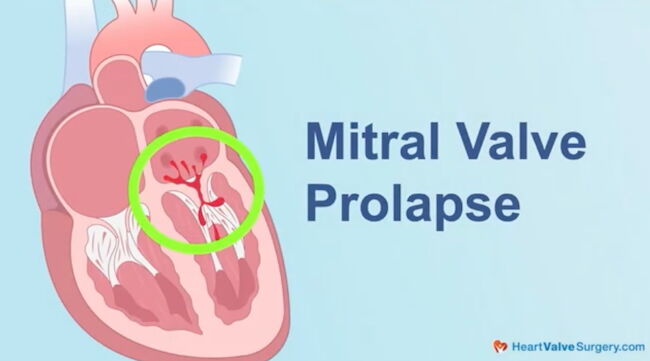Mitral Valve Prolapse Genetics: What Should Patients Know?
Written By: Allison DeMajistre, BSN, RN, CCRN
Medical Expert: Douglas Johnston, MD, Chief of Cardiac Surgery, Northwestern Medicine, Chicago, Illinois
Reviewed By: Adam Pick, Patient Advocate, Author & Website Founder
Published: November 18, 2025
Mitral valve prolapse is a congenital disorder that can affect the structure and the function of the heart. The disorder is often asymptomatic and many patients go undiagnosed for decades. Even when patients do learn of the heart valve problem, it’s not because they start feeling the effects but because their doctor hears a murmur and orders tests to identify the cause. Since many forms of heart disease, including valve disorders, are known to be passed down genetically, it makes sense that one of the first things patients think of when they learn of their condition is whether their children could also be affected and whether screening is warranted.
We recently had a patient question come in on this exact topic from Tim, who asked, “I see a lot of information about bicuspid aortic valves being passed down genetically. What about mitral valve prolapse? I have moderate mitral valve prolapse. Should my kids get tested?” To get an answer for Tim, we met with Dr. Douglas Johnston, the Chief of Cardiac Surgery at Northwestern Medicine in Chicago, Illinois.
Mitral Valve Prolapse and Genetic Testing
Here are the key insights shared by Dr. Johnston:
- Mitral valve prolapse is a common genetic condition. “That is a great question and one we get frequently,” said Dr. Johnston. “We do believe that mitral valve prolapse is a genetic condition, meaning that it does run in families, but it’s so common, and we don’t know what genes actually cause it, that we don’t typically recommend screening for it.”

- Monitoring bicuspid aortic valve disease versus mitral valve prolapse. Dr. Johnston said, “Even in bicuspid aortic valve disease, which is a less common condition and where we do echocardiogram screening of family members, we don’t know what the genes are that are involved. What I would say is, monitoring your own mitral valve prolapse, now that it’s known, is a good thing to do. We don’t recommend screening kids of other family members.”
Thanks Dr. Johnston and Northwestern Medicine!
On behalf of all the patients in our community, thank you, Dr. Douglas Johnston, for everything you and your team are doing at Northwestern Medicine in Chicago, Illinois!
Related Links:
- Survival Rates of Minimally-Invasive vs. Sternotomy with Dr. Doug Johnston
- Ask Dr. Johnston: How to Avoid Bacterial Endocarditis Infection at the Dentist?
- See Patient Reviews for Dr. Doug Johnston
Keep on tickin,
Adam
P.S. For the deaf and hard-of-hearing members of our patient community, we have provided a written transcript of our interview with Dr. Johnston below.
Video Transcript:
Adam Pick: Hi, everybody. It’s Adam with HeartValveSurgery.com and we’re in Los Angeles, California at the Society of Thoracic Surgeons Conference. I am thrilled to be joined by Dr. Doug Johnston, who is the chief of cardiac surgery at Northwestern Medicine in Chicago, Illinois.
Dr. Johnston, it is great to see you again, and thanks for being with me today.
Dr. Doug Johnston: Thanks, Adam.
Adam Pick: We’re here at STS, and while there are lots of research sessions going and breakout rooms with all the physicians, we’re getting patient questions, and this one came in from Tim, and he asks, “I see a lot of information about bicuspid aortic valves being passed down genetically. What about mitral valve prolapse? I have moderate mitral valve prolapse, should my kids get tested?”
Dr. Doug Johnston: That is a great question. It’s one we get very frequently. We do believe that mitral valve prolapse is a genetic condition, meaning that it does run in families, but it’s so common, and we don’t know what genes actually cause it, that we don’t typically recommend screening for mitral valve prolapse.
Even in bicuspid valve disease, which is a less common condition and where we do echocardiogram screening of family members, we don’t know what the genes are that are involved. What I would say with mitral valve prolapse is, monitoring your own mitral valve prolapse now that it’s known is a good thing to do.
We don’t recommend screening kids or other family members.
Adam Pick: Dr. Johnston. Thanks for answering Tim’s question and helping us learn all about the genetics of valve disease and thanks for everything you and your team are doing at Northwestern Medicine in Chicago, Illinois. Thanks for being with me today
Dr. Doug Johnston: Thanks a lot.




